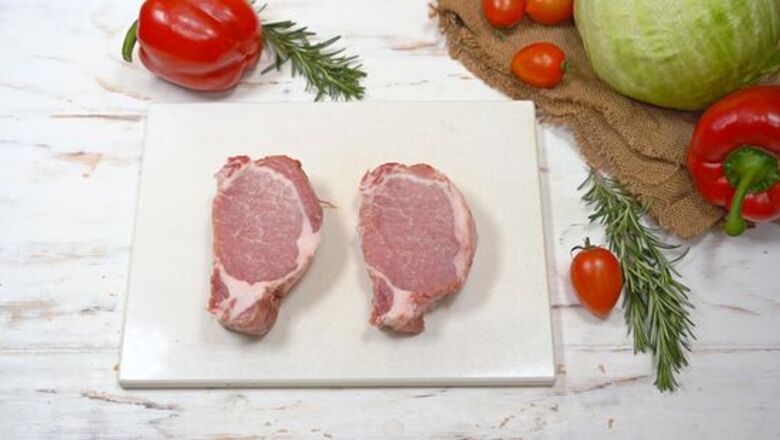
views
Readying the Meat and Pan
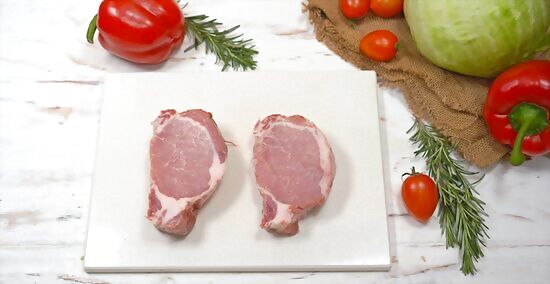
Buy a thicker cut of meat. Thicker cuts are easier to cook at home than thinner cuts. If you can't eat a whole thick-cut steak by yourself, divide it up once it's cooked. Also, picking one with a bone adds more flavor to the final dish. Better cuts of ribeye will have fat marbled throughout the steaks in thin ribbons and small dots.
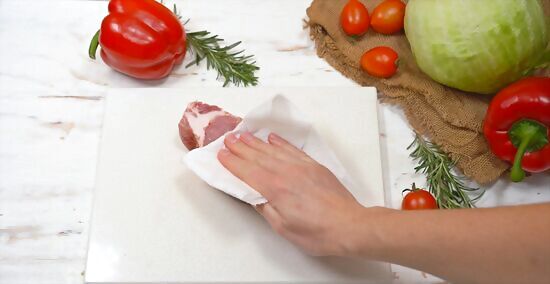
Dry off the meat. To sear a steak properly, the outside needs to be dry. Pat it off thoroughly with paper towels. The dry surface will lead to better cooking. In fact, you can salt the steak then leave it uncovered in the fridge overnight, which will slightly dry out the surface.
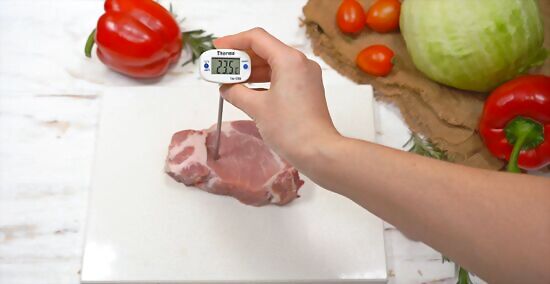
Bring the steak to room temperature. Going from the refrigerator to the pan with a ribeye can lead to uneven cooking, particularly if you have a thick-cut ribeye. It's best to let it come to room temperature, which means leaving it out for at least 30 minutes before cooking.
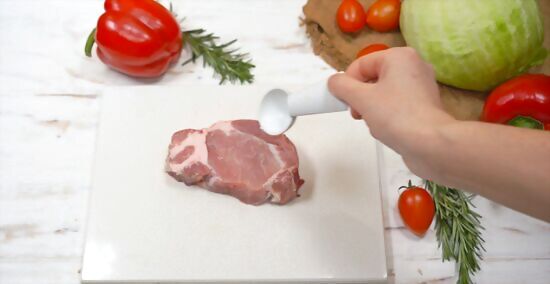
Season your steaks. Once you've got it dried off properly, you can season the steak to your tastes. Many chefs recommend staying simple when it comes to a good cut of meat like a ribeye. Start off with salt and pepper, and go from there. A bit of paprika or garlic powder may be a good addition. After you salt, you should start cooking the steak right away for the best sear. Otherwise, moisture will start to form on the surface. However, you can also salt and leave the steak out for 40 to 50 minutes, so the moisture has time to reabsorb into the steak.
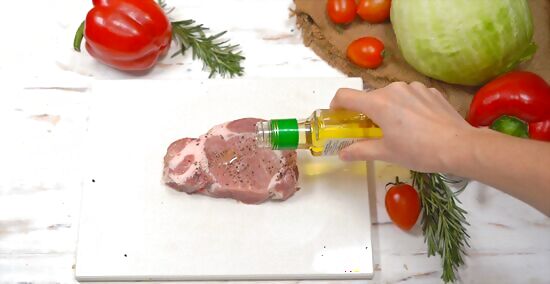
Add oil. Even in a cast-iron skillet, which is essentially nonstick, you still need to add a bit of oil to the pan to keep it from sticking. Choose a neutral oil that has a high smoke point, such as canola or refined peanut oil. Rub it into the steak. You can add the oil to skillet instead if you prefer.
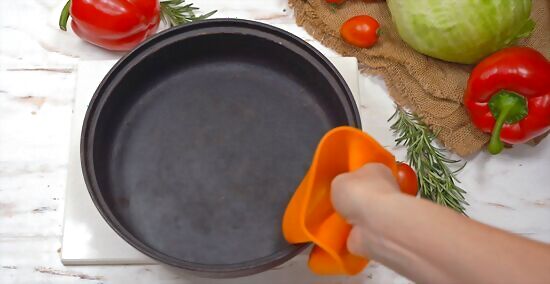
Heat the pan. A cast-iron skillet is best for this method, as it will help build a crust on the steak. Turn the oven on broil, and place the pan in the oven. Once the oven is hot, give it 15 minutes or so to heat up the pan. After the skillet is heated, take it out, but be ready for the next step.
Using an Oven-Only Method
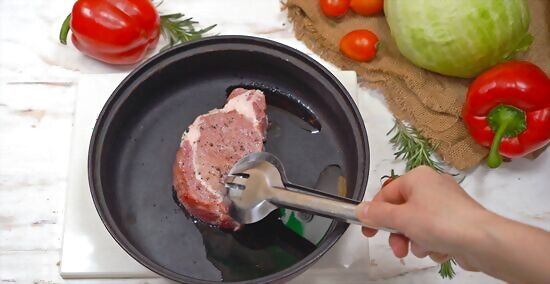
Sear the ribeye. Place the steak in the skillet. Let it sit on one side for 3 minutes, then flip it to the other side for 3 minutes. Be careful of splattering, as it will be very hot. Also, turn it up on its edge with tongs to sear some of the fat there. Searing your steak before cooking it in the oven will help give it an crispy exterior.
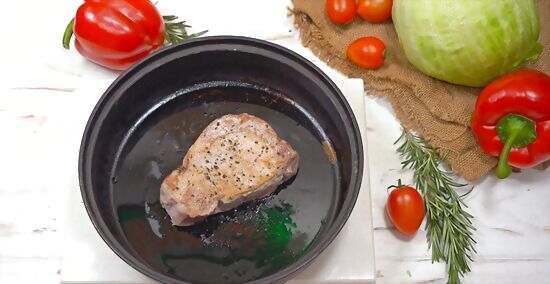
Cook the ribeye through. Turn the temperature to 500 degrees Fahrenheit (260 degrees Celsius), and place the pan with the steak back in the oven. You'll cook it according to size and your desired doneness. Cook it to 110 degrees Fahrenheit (43 degrees Celsius) for rare or 130 degrees Fahrenheit (54 degrees Celsius) for medium. You can go in between those for other levels of doneness. Use a meat thermometer to check. If you have a 1 1/4-inch steak, you'll cook it 2 to 3 minutes more for rare, 4 to 5 minutes more for medium, and 6 to 7 minutes more for medium well.
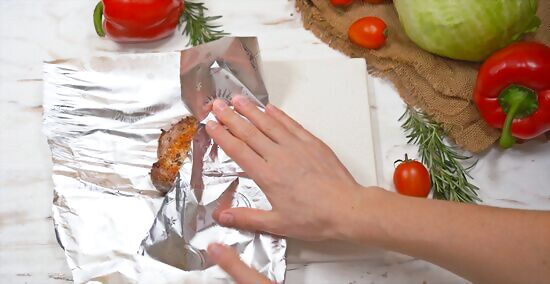
Let the steak rest. Take the steak out of the oven, and turn off the heat. Take the steak out of the pan, and make a loose foil cover for it. Give the steak about 5 minutes to rest before slicing into it.
Using the Oven and Stove
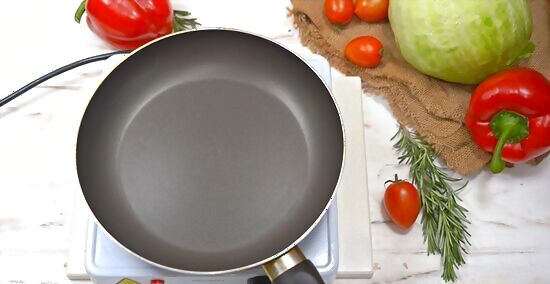
Place the skillet over high heat. Once you take the skillet out of the oven, you need to keep the heat going. Make sure the burner is hot before you take the skillet out. Set the skillet on the burner to ready it for the steak.
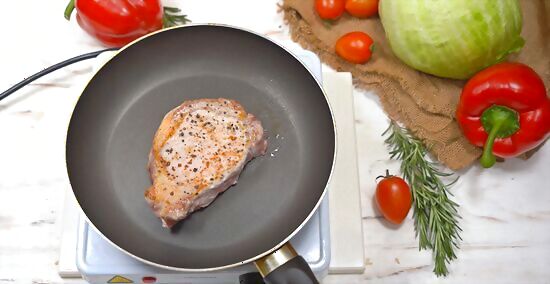
Sear the steak. Let it sear for 30 seconds on one side. Flip the steak, and sear it for 30 seconds on the other side. If the steak is especially thick, make sure to turn it on an edge with tongues for 30 seconds, too, so you sear the extra fat there.
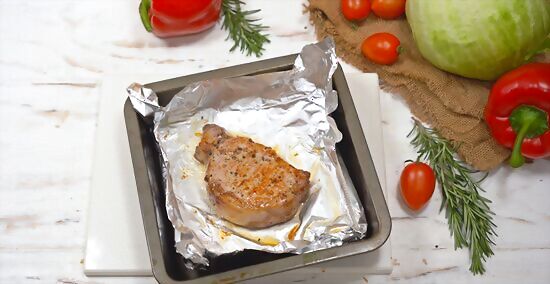
Finish the steak in the oven. Once you've seared both sides, the steak goes back in the oven. Turn the oven to 500 degrees Fahrenheit (260 degrees Celsius). For a thick steak, you'll need about 2 minutes on each side for medium rare. Cook it for an extra minute on each side of you want medium. You're aiming for 110 degrees Fahrenheit (43 degrees Celsius) for rare or 130 degrees Fahrenheit (54 degrees Celsius) for medium, which you can check using a meat thermometer.
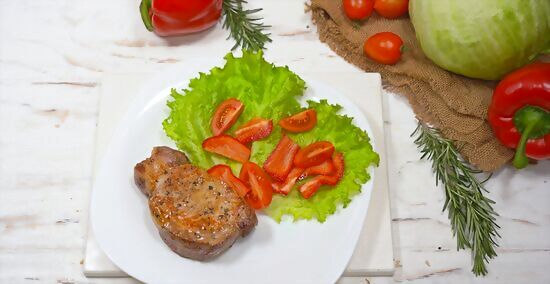
Rest the ribeye. After you pull the steak out of the oven, take it out of the pan. Give it a light cover of foil, and let it sit for 2 to 5 minutes. After the resting period, cut into the steak, and serve it.
Adding Toppings and Other Flavors
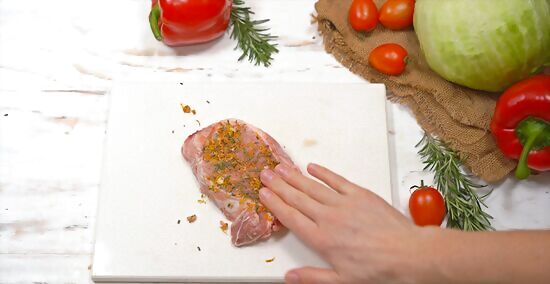
Try a rub. Make a mixture of fresh rosemary leaves, fresh thyme leaves, minced garlic, and lemon zest. Dry the steak off, and spread a layer of salt on it. Rub the herb mixture into the steak, and place the steak in the fridge overnight (or at least for 4 hours). Take the steak out before cooking, and rub the mixture off with your fingers. Let it come to room temperature. Rub it with oil, and cook as usual.
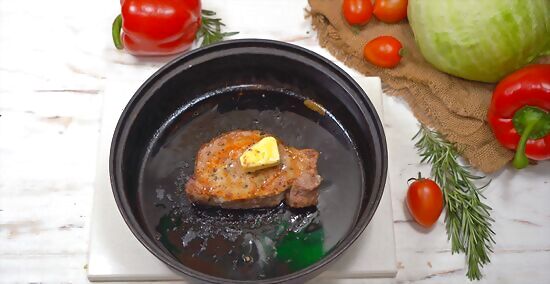
Use butter at the end. When flipping the steak in the oven, you can add a pat of butter on top of the steak. The butter will melt over the steak, adding additional flavor, but the butter won't have a chance to burn. You can also use an herbed butter at this point instead of plain butter.
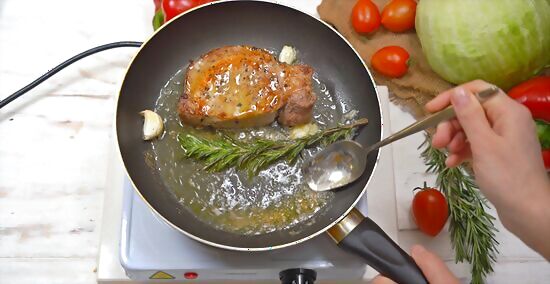
Reverse-sear the steak to add flavor at the end. A reverse sear is when you start the steak in the oven on a baking sheet at 250 degrees Fahrenheit (120 degrees Celsius), then finish it over high heat in the skillet. This process allows you to add more delicate flavoring at the end. For a 1 1/2-inch ribeye, you'll cook it in the oven for about 20 to 25 minutes for rare. Add 5 minutes for every level up you want to go in doneness (so 25 to 30 for medium rare, 30 to 35 for medium, and 35 to 40 for medium well). Have the skillet heating on the stove near the end with oil in it, and sear each side of the steak for about 30 to 45 seconds, including the edges. Before searing, you can add items like garlic cloves, thyme, and shallots to the oil for extra flavor.














Comments
0 comment